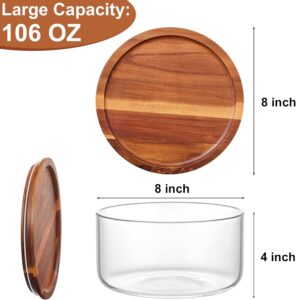The Mediterranean diet is a style of eating based on the traditional foods and eating habits of countries bordering the Mediterranean Sea, such as Italy, Greece, and southern Spain. It emphasizes whole, plant-based foods, healthy fats, lean protein sources, and a balanced approach to eating.
Key Components:
- Fruits and vegetables: A wide variety of fresh, colorful produce.
- Whole grains: Foods like whole wheat bread, brown rice, oats, and quinoa.
- Healthy fats: Primarily from olive oil, nuts, and seeds.
- Lean proteins: Such as fish (especially fatty fish like salmon), seafood, poultry, and legumes.
- Dairy: Moderate amounts of dairy, mostly in the form of cheese and yogurt.
- Herbs and spices: Flavoring food with herbs like basil, oregano, garlic, and rosemary rather than relying on salt.
Benefits of the Mediterranean Diet:
- Heart Health:
- The diet is known for promoting cardiovascular health. The high intake of monounsaturated fats (mainly from olive oil) and omega-3 fatty acids (from fish) helps reduce the risk of heart disease.
- It also helps lower bad cholesterol (LDL) and increases good cholesterol (HDL).
- Weight Management:
- The focus on nutrient-dense, high-fiber foods like vegetables, whole grains, and legumes can help you feel fuller for longer, potentially aiding in weight loss or maintaining a healthy weight.
- Improved Brain Function:
- Research suggests that the Mediterranean diet can improve cognitive function and reduce the risk of neurodegenerative diseases, such as Alzheimer’s and Parkinson’s. The antioxidants from fruits and vegetables and the omega-3s from fish contribute to brain health.
- Lower Risk of Type 2 Diabetes:
- The diet emphasizes low glycemic index foods and whole grains, which help stabilize blood sugar levels and improve insulin sensitivity.
- Reduced Inflammation:
- Chronic inflammation is linked to many diseases. The anti-inflammatory properties of olive oil, fruits, vegetables, and fish help reduce inflammation in the body.
- Longevity:
- Studies show that people who follow the Mediterranean diet tend to live longer, healthier lives with lower rates of chronic diseases.
- Better Digestion:
- The diet’s high fiber content from fruits, vegetables, legumes, and whole grains supports healthy digestion and gut health.
- Mood and Mental Health:
- A Mediterranean diet rich in healthy fats and antioxidants has been linked to better mental well-being, reducing the risk of depression and anxiety.
In summary, the Mediterranean diet is a sustainable, balanced way of eating that not only supports physical health but also emphasizes enjoyment of meals and social connections.
[a d] Large Salad Bowl with Lid, 106 oz with Acacia Wood Lid, Versatile Glass Trifle and Fruit Bowl, Large Mixing Bowl for Salads, Dessert, Fruit, Chips, Pasta, Dishwasher Safe. Scroll the ad link to see the many different types of salad bowls and see how versatile this one is.
Amazon creator ad link https://amzn.to/4hN3hhq


Thank you for reading my blog and clicking the links! Have a great, healthy day!
Health Disclaimer
The information provided on this website/document is intended for general informational purposes only and is not a substitute for professional medical advice, diagnosis, or treatment. Always seek the advice of your physician or other qualified health provider with any questions you may have regarding a medical condition. Never disregard professional medical advice or delay in seeking it because of something you have read on this site. If you think you may have a medical emergency, call your doctor or emergency services immediately.
The content on this site is not intended to diagnose, treat, cure, or prevent any disease. Results may vary depending on individual circumstances.
